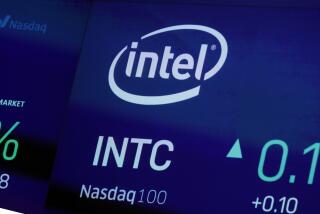Wang to Cut Another 2,000 Jobs by January
- Share via
BOSTON — Wang Laboratories Inc., the once high-flying minicomputer maker that now faces erosion of its position in a weakening industry, said today that it will cut 2,000 more jobs by Jan. 1 in a new streamlining effort.
The company said it will take a charge of about $30 million against earnings for its fiscal second quarter ended Dec. 31 due to the staff reduction.
Wang employs about 25,000 workers, down from about 32,000 a year ago. The ailing company has had a series of layoffs since 1985 in its attempts at a turnaround.
The new program is aimed at dismantling bureaucracy to provide better customer service and comes after a two-month study of Wang’s organization and business performance, the company said.
Wang, like the many other minicomputer concerns that grew by leaps and bounds in the 1970s, is struggling to come to grips with a computer market where most growth stems from personal computers and workstations--the powerful computers used by engineers and scientists.
Indeed, some personal computer makers have suggested that they might steal sales from the narrowing minicomputer market with the recent introduction of more powerful and faster desktop machines. Last week, Compaq Computer Corp. unveiled its new personal computer based on Intel Corp.’s powerful i486 chip.
Wang’s decline, which started in 1984, shows what happens to a company that moves too slowly in a fast-moving market. For example, the company failed to enter the desktop computer market fast enough although it had the word processors that placed it in a position to dominate that market.
But instead of meeting the competition head-on, Wang chose to produce high-priced personal computers that were incompatible with International Business Machines Corp. systems.
On Oct. 18, Wang posted a loss of $62.1 million for its fiscal first quarter ended Sept. 30, compared with a profit of $13.1 million in the period a year ago.
The company faces a short-term cash problem and a longer-term decline that may threaten its independence.
Wang’s lenders recently forced the company to renegotiate $575 million in bank borrowings.
Movements at the helm have also troubled the company. In August, Wang’s chairman and founder, An Wang, apparently forced out his son, Frederick Wang, as president and chief operating officer.
Frederick Wang’s departure signaled a sweeping change for the company, which had always had a Wang family member at the helm. Industry analysts had interpreted the move as a show to customers and creditors that Wang was serious about a turnaround.
Frederick Wang was replaced by Richard Miller, a former head of General Electric Co.’s electronics business.






